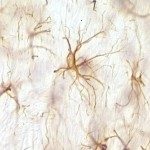Link to Pubmed [PMID] – 26627138
Link to DOI – 10.1016/S1473-3099(15)00361-8S1473-3099(15)00361-8
Lancet Infect Dis 2016 Feb; 16(2): 259-63
The Ebola virus epidemic has topped media and political agendas for months; several countries in west Africa have faced the worst Ebola epidemic in history. At the beginning of the disease outbreak, European Union (EU) policies were notably absent regarding how to respond to the crisis. Although the epidemic is now receding from public view, this crisis has undoubtedly changed the European public perception of Ebola virus disease, which is no longer regarded as a bizarre entity confined in some unknown corner in Africa. Policy makers and researchers in Europe now have an opportunity to consider the lessons learned. In this Personal View, we discuss the EU’s response to the Ebola crisis in west Africa. Unfortunately, although ample resources and opportunities for humanitarian and medical action existed, the EU did not use them to promote a rapid and well coordinated response to the Ebola crisis. Lessons learned from this crisis should be used to improve the role of the EU in similar situations in the future, ensuring that European aid can be effectively deployed to set up an improved emergency response system, and supporting the establishment of sustainable health-care services in west Africa.

